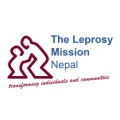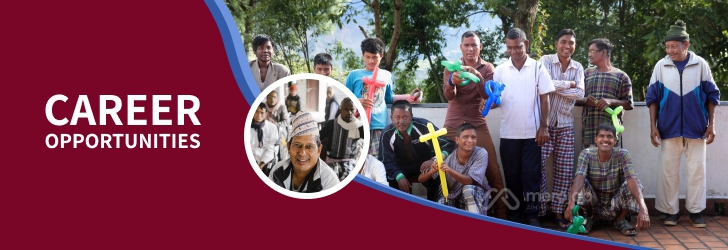Location: Project Office – Butwal
Job Family: Programs
Department / Team / Project: IMPACT Project
Reports to: Project Manager & Designated Safeguarding Lead
Overall purpose of job
The Gender & Safeguarding Officer will be responsible for integrating, mainstreaming and pro-active to contribute in the organisation and also for the project on planning, implementation, monitoring of gender related activities and reporting to Project Manager.
This position will requires building the capacity of women within the community to facilitate their participation and leadership role in emergency management, mentoring coaching & supporting programme teams and partner staff in gender mainstreaming and safe programming. S/he will also require to lead in integrating gender into MEAL processes in operation area; setting of specific indicator for process monitoring and follow up, advising team in getting gender specific information through monitoring process.
Key tasks and responsibilities
Planning and Implementing Project Activities:
- Plan the programs based on the Gantt chart for the area and groups or cooperative members
- Actively participated in every planning and reporting meeting
- Organized the planned activities in close coordination with other project staff and in the consent of the group members considering the seasonal calendar.
- Coordinate with different stakeholders for the cheaper and better result of the activities
- Support and facilitate to other program staffs, field volunteer’s groups/ cooperatives to conduct the meeting.
- Support for other staffs and facilitate the training and orientation of project related issues for the community and groups members.
- Facilitate other staffs and SHG/Cooperative members to select the suitable IGA based on the gender lens.
- Suspect leprosy and refer to local health center
- Facilitate to raise the issues of gender, domestic violence, stigma, disability and discrimination of the SHG/Cooperative members
- Facilitate to link the members with local judicial committee and district bar for the victim of domestic violence, discrimination, stigma etc
- Develop the training materials and information, education and communication materials for gender and inclusion related
- Conduct needs assessment on gender issues
Collect data, analyze and collate information on the participation of women with Leprosy, and disability within project communities. This include:
- The barriers women with leprosy and disabilities face
- Their roles, access and rights within the communities or SHGs
- Incidence of domestic violence (DV) and analysis of support services for domestic violence.
- Livelihoods women mostly participate in and their potential for advancement in their livelihoods.
- Women’s and girls’ roles within households
- Women’s participation in the activities conducted the organization o The skills women need access to for empowerment to participate and gain standing with their communities or to access sustainable livelihoods.
Analyzing the data that has been collected to access:
- The relationship between access to employment, particularly if it is outside the home environment, and overall household income?
- Investigate whether increased income, particularly for the woman, changed (improved) decision-making power or led to negative perceptions
- The differences that have occurred since women have started to participate in SHGs as a result of training for women e.g. business or farming activities
Act as a focal point/representative on Gender in Nepal Response by TLM in operation area for enhancing sharing, linking and learning process with field teams, relevant technical/thematic issues, as well as coordination with external concerned people and authority
Support field program team members to maximize program participation and increase empowerment opportunities for marginalized groups including the Women, Dalits, Janajatis, etc.
Ensure that activity design maximizes participant engagement from the beginning of the program while managing and mitigating risks of cultural disrespect and gender based violence.
Women Empowerment:
- Provide training in basic skills that women require that will support their empowerment (literacy skills, vocational skills).
- Provide women with leprosy and disability (through SHGs) with training in advocacy and influencing.
- Find out additional ways in which we can invest in women and girl’s empowerment?
Capacity Building:
- Identify the gender perspective need/gap of staffs, project volunteers and community Champions/SHGs/Cooperatives
- Develop the gap filling program with the support of PM and other program staffs.
- Provide training to stakeholders, partners and local communities on gender based violence and prevention
- Increase awareness on gender based rights to women with leprosy and disability, their families and communities.
- Provide training to staffs, health officials on gender and development, particularly on what to look for (e.g. changed behaviors) and how to provide feedback to the gender specialist.
- Conduct media awareness activities
Partnerships and Public Engagement:
- Establish partnerships with women’s rights groups and conduct joint advocacy campaigns
- Provide information and increase awareness in the community of support groups/organizations for women with leprosy and disability who experience discrimination and violence.
- Identify the resource sharing partner for the common issues to organize the activity jointly
- Collaborate with state or local government to conduct events to celebrate women’s day, leprosy day. Disability day etc
- Participate in relevant gender forums and networks focusing on advocacy on Gender equality and GBV prevention and response
- Maintain relationship with partners and allies among the women’s organizations, both to support them in communicating to the rest of the organization policy or other emerging issues, and to promote their participation in coordination systems at the local level
Reporting & Documentation
- Submit monthly and event wise report to PM of all field activities ∙ Prepare monthly work sheet and event wise report
- Collect field level information and document them
- Collect baseline, Mid-term and final evaluation of SHG/ Cooperative members and support
- Prepare, encourage and facilitate to Community champions to prepare transformation story of project beneficiaries
Monitoring and evaluation:
- Ensure that projects target relevant gender issues and review projects for gender impact.
- Support in the monitoring and evaluation of activities ensuring gender equality is maintained and justify it through a report quarterly.
- Mentoring and coaching programme teams and partner staff in gender and safe programming.
Safeguarding:
- Promotes Implementation of Safeguarding Policy & Procedure, Code of Conduct and raise awareness of safeguarding issues within the project and community.
- Ensure that there is a beneficiary feedback & Response mechanism in place.
- Support delivery of training, presentation and awareness-raising activities as required
- Monitor Effectiveness and compliance of the policy and procedure.
- Provide recommendation for enhancing safeguarding measures
- Support Staff and representative are aware of their responsibilities.
- Promote staff responsibility to report all suspicions of abuse.
- Oversees risk assessments and developed with mitigation plans
- Escalate concerns to DSL Immediately.
- Communicate regularly with DSL/ DSO
- Receives safeguarding concerns reports in country and logs.
- Reports Monthly to DSL and Deputy DSL.
- Support Project Leads to map service for referral pathway.
Any other job as assigned and agreed with the reporting manager.
Person Specification
- Bachelor’s degree (holder) in Social Science, Human Rights, Law, international Development, or related fields; with 2 years of experience in relevant field.
- Good understanding and experience of working within the humanitarian and / or development context.
- Demonstrable experience in and commitment to Gender, Protection, GBV, Gender Justice & Safeguarding including experience designing and delivering training.
- High degree of organisational ability, working well to deadlines. Ability to work under pressure and willingness to work flexible hours in the event of emergencies.
- Ability to maintain and support a network within an organisation.
- Experience developing internal communications to build capacity and enhance network
- Excellent experience of presenting complex information in a succinct and compelling manner
- Excellent self-awareness and understanding of the need for self-care
- Ability to work in multi-cultural team across different geographical locations, including providing remote support to field teams/partners when required.
- Strong IT skills
- Excellent written and spoken English












